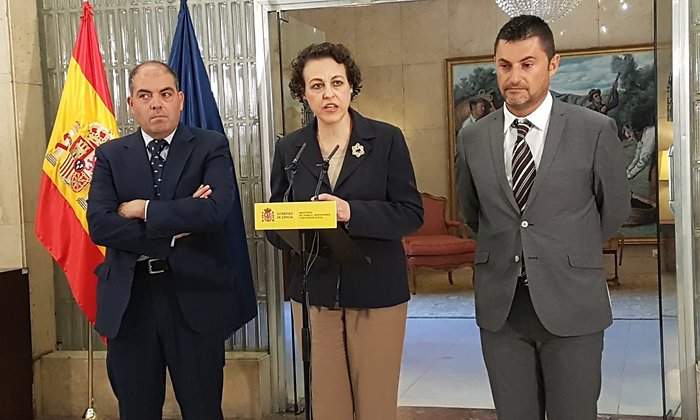The group will quote in sections according to real income
The universal flat rate for the new self-employed has its days numbered. This was agreed yesterday in a meeting between the two large self-employed associations - the Association of Self-Employed Workers (ATA) and the Union of Professionals and Self-Employed Workers (Upta) - and the Minister of Labour, Migrations and Social Security, Magdalena Valerio, that will study through a Technical Working Group the creation of a fair contribution system based on the real income of the self-employed.
This commission of experts, which will start working immediately, aims to achieve a reform of the current contribution system, to "return the flat rate as it is currently conceived so that it can be modified and be more effective" as stated the minister at the end of the meeting.
In this way, it is intended to create a system with five contribution brackets so that "no self-employed person pays more than their income and provide the effort of those who are exceeding the limit of a reasonable contributory pressure."
Valerio assures that one in four self-employed workers contributes above their income
For Eduardo Abad, president of Upta, with this meeting "the social dialogue of the self-employed is recovered in which the two large associations of the self-employed sit down to discuss, propose and present substantial proposals for improvement for our collective"; while for the president of ATA, Lorenzo Amor, the self-employed need a "solidarity, but also fair" Social Security system "as soon as possible". Both ATA and Upta agree that it is essential that "the self-employed regain confidence in the public Social Security system and, for this, the Administration must take steps forward and make important gestures."
The proposal determines that the self-employed whose income does not exceed the Minimum Interprofessional Wage (SMI), of 735.90 euros/month, their contribution to Social Security will be similar to the flat rate, of approximately 50 euros/month for two years, subject to not exceeding an annual income of 10,302 euros. After this two-year period, it may be extended year by year, up to a maximum of four.
In a second tranche, the self-employed with net income higher than the SMI but less than 30,000 euros/year will be able to choose between the current minimum contribution base, of 278.87 euros per month, and a maximum base, of 1,106 euros, common for the rest of sections. In a third tranche, with net annual returns between 30,000 and 40,000 euros, the minimum contribution base will be 357 euros/month; in a fourth tranche, with income between 40,000 and 60,000 euros/year, the minimum contribution base will be 417 euros per month; and finally, those who exceed a net income of 60,000 euros must pay 556 euros per month.
From Upta they point out that the data are approximate in the absence of defining extraordinary voluntary contributions such as cessation of activity or professional contingencies.

